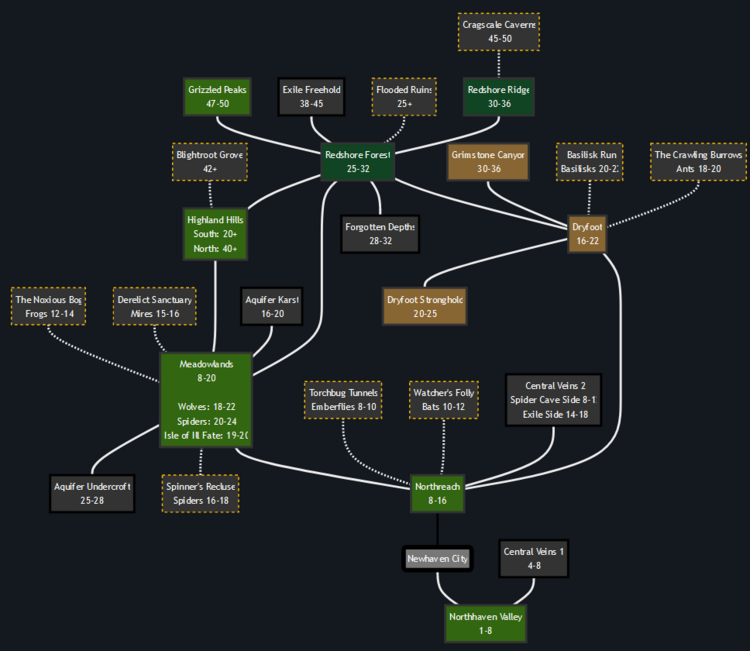- Roles and Specializations
- Defender • Knight • Marshall • Juggernaut
- Striker •Berserker • Brigand • Warden
- Supporter • Sentinel • Duelist • Warlord
- Tradeskills
- Hunter • Forester • Prospector • Armorsmith • Weaponsmith
- Woodworker • Tinkerer • Provisioner • Outfitter
|
- Zones
- Ember Veins • Dungeons • Solo Loops
- Quests
- Ember Quests • Standard Quests • Tradeskill Quests
- Items
- Armor • Weapons • Tools • Crafting • Consumables • Misc • Reagents
- NPCs
- Bulletin Boards
|
- Game Updates
- Official Site
- Official Forums
- Official Discord
- Wiki Discord
- Wiki Getting Started
|



